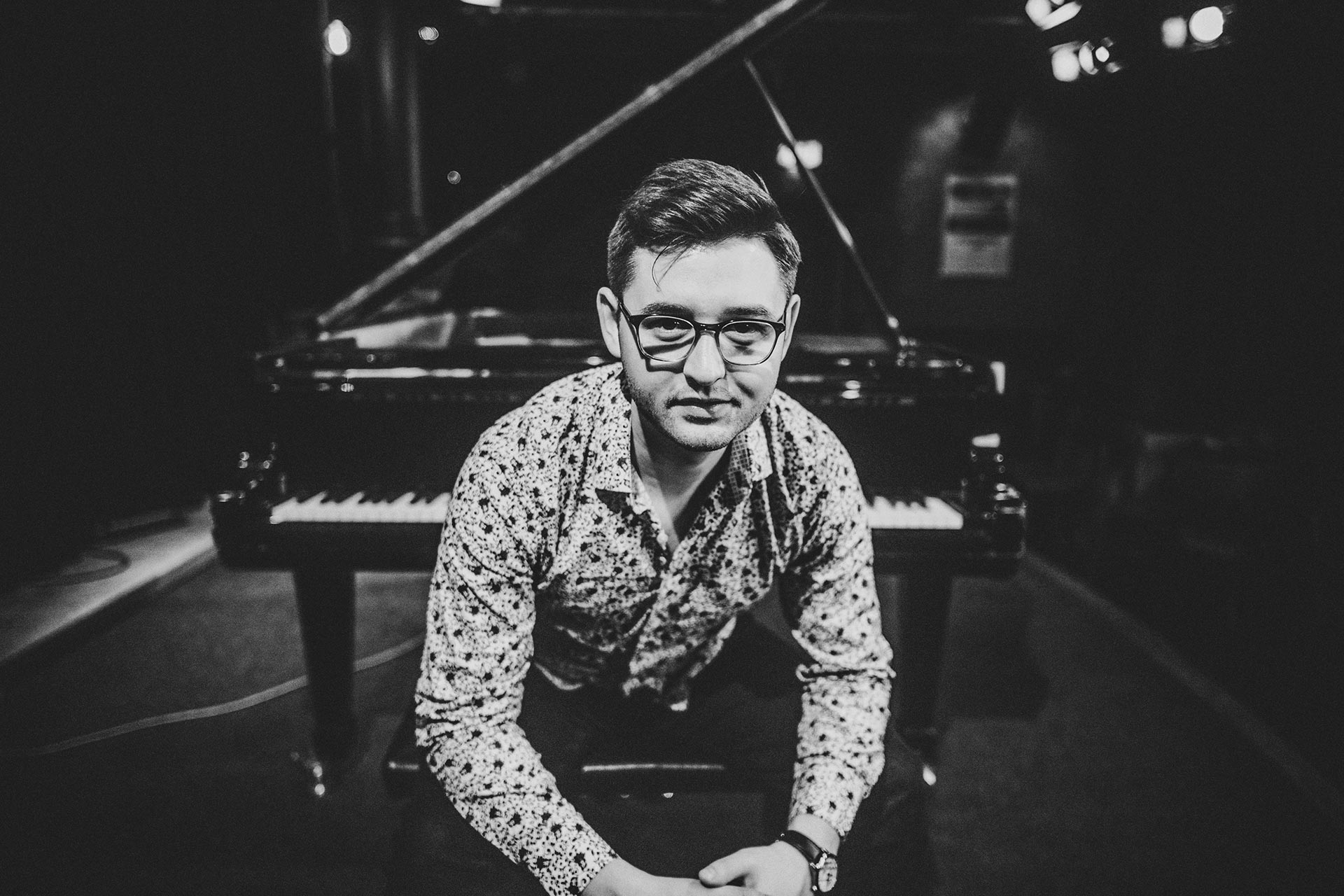Sam Hylton

Prices
The Munich-based American pianist is the recipient of the 2021 BMW Welt Young Artist Jazz Award. Second concert at 8 p.m.
Sam, why did you end up in Bavaria as an American?
When I studied Spanish for three years at school, I noticed how easy it was for me to learn languages. This is also related to music, because the musical ear and the linguistic ear are basically the same. Parallel to my music studies in Seattle, Washington, I then studied German language and literature, because after half a year as a guest student in Heidelberg, my passion for Germany was ignited. In Munich, I started an internship at ECM Records, but after a year I focused again on my master's studies [in jazz piano] at the Hochschule für Musik und Theater. I find life here in Germany very refreshing and exciting. There are many performance opportunities for musicians in Bavaria. I have also been able to work here as a lecturer, for example at the summer courses in Burghausen, but also as part of a teaching assignment at my former conservatory. After six years, I can say: "Do bin i dahoam."
The Leipzig audience could already hear you in 2019 in the group of singer Hannah Weiss, in which tenor saxophonist Moritz Stahl also played, with whom you are performing again this time. How did you get to know each other?
I have been playing with Moritz in various bands for five years now. The first time I saw him was with the big band of the university in Munich. He was the coolest guy on stage because he played with such a naturalness, so I wanted to work with him right away.
How would you describe the music of your quartet?
The compositions of all band members are in the foreground. My own compositions tend towards straight ahead jazz, which is also heavily influenced by the blues. But I try not to be too strict with the genres. Occasionally, an influence from classical music is audible, as I've studied Brahms' Intermezzi, for example. In contemporary jazz, I appreciate the classical instrumentation with tenor saxophone, piano, bass and drums, because it has such a rich tradition and you can still play very modern in it. It's all a matter of attitude and how you treat the composition. Even standards can be completely modernized through interpretation. There are old standards that are still modern in themselves, like "All The Things You Are" - that's a very complex piece that's not so easy to play.
How do you compose?
It starts with a melody, though I often deliberately don't compose on the instrument because my fingers have become accustomed to certain patterns that they want to play on their own because they are familiar. The best way is to sit down in the park with pen and paper. It's always about expressing something about the present as well as your own identity. For me, of course, composing also means saying something that hasn't been said yet. Then comes the beautiful experience of playing these notes together with other people and bringing them to life.
